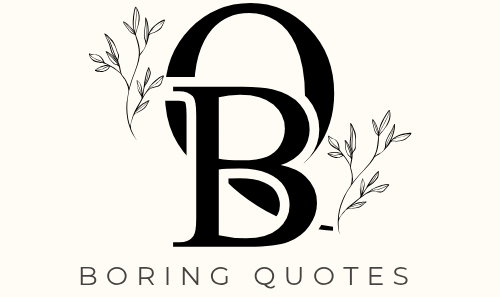Top100 Best Quotes For Disgust
Here are 100 quotes on disgust, reflecting on its complexities and impacts:
Top 100 Quotes for Disgust
- “Disgust is the body’s way of saying, ‘This is not for you.'” – Unknown
- “Disgust is a powerful emotion that can drive us away from what we find repulsive.” – Unknown
- “Disgust is a reaction that can reveal much about our values and boundaries.” – Unknown
- “Disgust often signals a need for change or distancing from something undesirable.” – Unknown
- “Disgust is a natural response to things that challenge our sense of decency.” – Unknown
- “Disgust is the mind’s way of rejecting what the body finds offensive.” – Unknown
- “Disgust can be a barrier that protects us from harm or contamination.” – Unknown
- “Disgust reflects the boundaries we set to maintain our sense of well-being.” – Unknown
- “Disgust is an emotional response that can push us to seek better circumstances.” – Unknown
- “Disgust is a signal that something is not aligned with our values or comfort.” – Unknown
- “The feeling of disgust is often a reaction to a violation of our personal norms.” – Unknown
- “Disgust can be a powerful motivator for change and improvement.” – Unknown
- “Disgust helps us avoid potential dangers and maintain our integrity.” – Unknown
- “Disgust is an emotional safeguard that helps us avoid what we perceive as harmful.” – Unknown
- “Disgust is a reminder that our boundaries and values are worth protecting.” – Unknown
- “Disgust can be a catalyst for transformation when we use it to reevaluate our choices.” – Unknown
- “Disgust is an intense reaction that underscores our need for cleanliness and order.” – Unknown
- “Disgust is the mind’s way of marking something as off-limits or unacceptable.” – Unknown
- “Disgust often reveals what we hold dear and what we cannot tolerate.” – Unknown
- “Disgust can be a powerful force in shaping our preferences and behaviors.” – Unknown
- “Disgust signals a need to reevaluate our environment or experiences.” – Unknown
- “Disgust is a reaction that keeps us away from things that threaten our sense of safety.” – Unknown
- “Disgust is a protective mechanism that helps us maintain our emotional well-being.” – Unknown
- “Disgust often prompts us to seek out what is more aligned with our values.” – Unknown
- “Disgust can be a useful emotion when it drives us to avoid or change undesirable situations.” – Unknown
- “Disgust is a powerful emotion that highlights our personal standards and limits.” – Unknown
- “Disgust reflects our personal intolerance for what challenges our sense of normalcy.” – Unknown
- “Disgust helps us navigate the world by marking what we find unacceptable.” – Unknown
- “Disgust can serve as a guide, pointing us away from what we perceive as harmful or offensive.” – Unknown
- “Disgust is a signal that we need to reassess our interactions or environments.” – Unknown
- “Disgust can be a motivator for creating positive change by highlighting areas for improvement.” – Unknown
- “Disgust helps us identify and avoid things that clash with our personal values.” – Unknown
- “Disgust is an emotional response that can help us avoid unpleasant or harmful experiences.” – Unknown
- “Disgust reflects our need to maintain a sense of cleanliness and order in our lives.” – Unknown
- “Disgust is an intense feeling that often indicates a need for personal boundaries.” – Unknown
- “Disgust serves as a warning that something is amiss and needs attention.” – Unknown
- “Disgust can help us protect ourselves from experiences that challenge our comfort zones.” – Unknown
- “Disgust is an emotional response that can drive us to seek more harmonious conditions.” – Unknown
- “Disgust often highlights what we consider unacceptable or intolerable in our lives.” – Unknown
- “Disgust can be a tool for understanding our own limits and preferences.” – Unknown
- “Disgust signals that something needs to be addressed or avoided for our own well-being.” – Unknown
- “Disgust is a reflection of our personal standards and what we cannot tolerate.” – Unknown
- “Disgust often prompts us to seek out cleaner, more acceptable alternatives.” – Unknown
- “Disgust can be a powerful emotion that helps us maintain our personal boundaries.” – Unknown
- “Disgust is a reaction that highlights our need for safety and emotional comfort.” – Unknown
- “Disgust can drive us away from experiences or environments that challenge our sense of well-being.” – Unknown
- “Disgust reflects our emotional response to what we find offensive or harmful.” – Unknown
- “Disgust serves as a marker for what we find unacceptable or distressing.” – Unknown
- “Disgust is an emotional response that helps us avoid potentially damaging situations.” – Unknown
- “Disgust can be a sign that we need to reevaluate our surroundings or choices.” – Unknown
- “Disgust often indicates a violation of our personal standards and values.” – Unknown
- “Disgust is a powerful force that can drive us towards more acceptable and comfortable experiences.” – Unknown
- “Disgust is a signal that something is out of alignment with our personal sense of normalcy.” – Unknown
- “Disgust can help us avoid situations that clash with our values and sense of order.” – Unknown
- “Disgust is a reaction that helps us navigate our environment by marking what is unacceptable.” – Unknown
- “Disgust reflects our emotional boundaries and what we are unwilling to accept.” – Unknown
- “Disgust is a protective mechanism that helps us maintain our sense of cleanliness and safety.” – Unknown
- “Disgust can drive us to create change by highlighting areas that need improvement.” – Unknown
- “Disgust is an intense emotion that signals our need to protect our personal space and values.” – Unknown
- “Disgust often reveals what we find unacceptable and helps us avoid those situations.” – Unknown
- “Disgust is a natural response to things that challenge our sense of decency and comfort.” – Unknown
- “Disgust helps us maintain our emotional and physical boundaries by marking what is off-limits.” – Unknown
- “Disgust can be a catalyst for change, pushing us away from undesirable experiences.” – Unknown
- “Disgust reflects our personal standards and what we are unwilling to tolerate.” – Unknown
- “Disgust is an emotional reaction that highlights our need for cleanliness and order.” – Unknown
- “Disgust often prompts us to seek out more harmonious and acceptable alternatives.” – Unknown
- “Disgust can be a powerful motivator for avoiding or changing unpleasant situations.” – Unknown
- “Disgust is a reaction that helps us identify and avoid what we find offensive or harmful.” – Unknown
- “Disgust signals that we need to protect our personal boundaries and emotional well-being.” – Unknown
- “Disgust can be a tool for understanding our own limits and values.” – Unknown
- “Disgust reflects our reaction to what challenges our sense of safety and comfort.” – Unknown
- “Disgust is an emotional response that helps us avoid experiences that clash with our values.” – Unknown
- “Disgust serves as a marker for what we find unacceptable and helps us navigate our surroundings.” – Unknown
- “Disgust is a signal that something in our environment or experience needs to be addressed or avoided.” – Unknown
- “Disgust can drive us to seek out cleaner, more acceptable alternatives in our lives.” – Unknown
- “Disgust often highlights what we find repulsive and helps us avoid those situations.” – Unknown
- “Disgust is a natural reaction that helps us maintain our emotional and physical boundaries.” – Unknown
- “Disgust reflects our need for protection and our unwillingness to tolerate what we find harmful.” – Unknown
- “Disgust is a powerful emotion that can guide us away from undesirable or harmful experiences.” – Unknown
- “Disgust signals that we need to take a closer look at what we are experiencing and address it.” – Unknown
- “Disgust often reveals our personal standards and what we consider unacceptable.” – Unknown
- “Disgust can be a motivator for positive change by highlighting areas that need improvement.” – Unknown
- “Disgust is an intense feeling that helps us maintain our sense of cleanliness and order.” – Unknown
- “Disgust can help us avoid situations that challenge our personal values and sense of decency.” – Unknown
- “Disgust reflects our boundaries and what we are unwilling to accept in our lives.” – Unknown
- “Disgust is a protective mechanism that helps us navigate our environment safely.” – Unknown
- “Disgust can drive us away from experiences or environments that challenge our comfort zones.” – Unknown
- “Disgust is an emotional reaction that highlights what we find unacceptable and helps us avoid it.” – Unknown
- “Disgust is a signal that something needs to be addressed or avoided to maintain our well-being.” – Unknown
- “Disgust often reveals our personal limits and what we find intolerable.” – Unknown
- “Disgust can be a powerful motivator for change by marking what needs to be avoided.” – Unknown
- “Disgust is a natural response that helps us protect our sense of safety and cleanliness.” – Unknown
- “Disgust reflects our personal standards and what we are unwilling to tolerate.” – Unknown
- “Disgust is a signal that we need to reevaluate our surroundings or experiences.” – Unknown
- “Disgust can be a tool for maintaining our emotional and physical boundaries.” – Unknown
- “Disgust often highlights what we find repulsive and helps us navigate away from it.” – Unknown
- “Disgust is a reaction that helps us avoid situations that challenge our comfort and values.” – Unknown
- “Disgust can drive us to seek out better alternatives and improve our circumstances.” – Unknown
- “Disgust is a powerful emotion that reflects our personal boundaries and sense of well-being.” – Unknown
- “Disgust serves as a guide to avoid what we find unacceptable and seek out what aligns with our values.” – Unknown

